In a world of social networking and spontaneous public likes, follows and feedback, where do employee surveys fit in?
Are annual forms requiring ticks and crosses still relevant or has the employee survey had its day?
I ran a course on social media strategy in London today on behalf of the Institute of Internal Communication, and during the discussions with comms pros, this topic came up.
My advice is if you run any type of survey internally, it needs to be coupled with an action plan. Simply imploring employees to have their say, without defining what happens next is foolhardy, regardless of the format it is in.
So employees have their say. Then what?
If you don’t act on the information they provide and commit to taking employees’ comments seriously, your response rate will typically drop when you attempt to run it again.
AB agency here in the UK has just released a report focusing on all the questions I’ve posed, and a lot more.
In a guest post for the All Things IC blog, consultant Amy Hegarty (pictured), @amyhegs. shares their thinking.

They wanted to look at effectiveness and whether surveying employees annually via tick boxes is the right thing to do in an age where we have so many other options and ways to communicate.
I think it makes an interesting read, you can access the whole report online and I encourage you to take a look.
I’ll hand you over to Amy…
A questionable exercise
In a year when one of the world’s biggest companies has been heavily criticised by its workforce (not good news for Amazon), we’re all aware of the importance of looking after employees.
People are more willing to openly share criticism online these days (via Glassdoor, for example), which sometimes doesn’t do much for brand reputation.
But there is also a heap of research linking employee engagement to productivity, customer service, and a whole host of other indicators of strong business performance.
Further reading about Glassdoor: Seen what your employees are saying about you?
How can you measure engagement?
I started at AB in February when research was already well under way into how organisations measure employee engagement.
More than 20 years of working in the communications field had got AB’s managing director, Katie Macaulay, asking some probing questions:
- Why has the standard survey process changed so little since the 1950s?
- Is it still the best way to measure the views, opinions and engagement of a workforce?
- Or, have our imaginations failed us?
- Have we yet to devise a better way to understand the mindset and motivations of people at work?
 My next few weeks and months were spent conducting hours of qualitative research with HR and communication professionals who commission and run employee engagement surveys.
My next few weeks and months were spent conducting hours of qualitative research with HR and communication professionals who commission and run employee engagement surveys.
We also hosted an online survey for employees to tell us their experience of participating in these surveys.
I admit to being cynical of these kinds of surveys before the work began. I’ve completed several of these surveys during my working life and the results of our research showed that I’m not alone in often feeling that I’ve wasted valuable, would-be productive time filling out something that seems to mean very little to my organisation.
When asked, half of sample of 100 employees across a range of industries want to see improvements to the way their views are surveyed.
Less than half say they receive honest feedback on the results. A significant minority – 41% – do not believe senior managers value the survey process, and only 36% could point to changes made as a result of the survey.
Employees clearly think, if you’re not going to listen to my suggestions, why am I bothering?
This raises the ironic prospect of organisations actively disengaging staff by ineffectively measuring their levels of engagement.
Digging into the data
 Luckily, it’s not all bad news for cynics like me. As I dug deeper in our data, I found the results truly fascinating.
Luckily, it’s not all bad news for cynics like me. As I dug deeper in our data, I found the results truly fascinating.
I’m pleased to say, for many organisations, the case for having engaged employees is clear, and some can clearly correlate engagement levels to key performance indicators like productivity, gross margin and safely.
Some HR professionals are truly passionate about finding the very best way to collect and collate this data and believe the employee engagement survey, in its current state, is not the best solution.
Biggest frustrations
The biggest frustration for those running these surveys is timing. It can take months to process the information and relay results back to those who took part.
Our research showed lots of emphasis on communicating the launch of the survey, but few people were able to talk us through a comprehensive plan for communicating the results.
 Enthusiasm and the robustness of the communications plan seem to peter away. I suspect this may be why so few employees could point to changes made as a result of the survey. Either no changes were made or they were not communicated effectively.
Enthusiasm and the robustness of the communications plan seem to peter away. I suspect this may be why so few employees could point to changes made as a result of the survey. Either no changes were made or they were not communicated effectively.
Several interviewees genuinely inspired me with their passion and enthusiasm for employee engagement. These practitioners made the clear distinction between measuring and managing engagement.
The most evangelical are looking at neurological and psychological levers of engagement. They are experimenting with more innovative ways to track sentiment in real-time tailored around the unique characterises of their workforce.
Although the standard survey is certainly not dead, I’m confident, with this handful of people leading the way, others will become brave enough to try something different.
Our research gives me hope that in a few years none of us will be forced to sit through another examination-style employee survey. Instead, we will be involved in a process that is as engaging to complete as it is insightful to commission.
The report highlights insights from all stages of the survey process. If you have any questions about the report please send me an email on amy.hegarty@abcomm.co.uk
Post author: Amy Hegarty.
Thank you Amy.
You can read the whole report online.
What do you think? Do employee surveys work for you or are you trying something new? As ever you’re welcome to comment below or Tweet me @AllthingsIC.
Further reading to help you in your role:
 How to write an internal communication strategy
How to write an internal communication strategy
How to learn about internal communication
How to create an internal comms strategy from scratch
How to enter comms awards
How to simplify your intranet
How to conduct an internal comms audit
Want to read more articles like this? See my Free Stuff page.
2016: Sign up to a Masterclass from All Things IC to learn about internal communication.
Rachel
First published on the All Things IC blog 17 November 2015.











[…] What’s the future of employee surveys? – tänkvärt om medarbetarenkäter […]